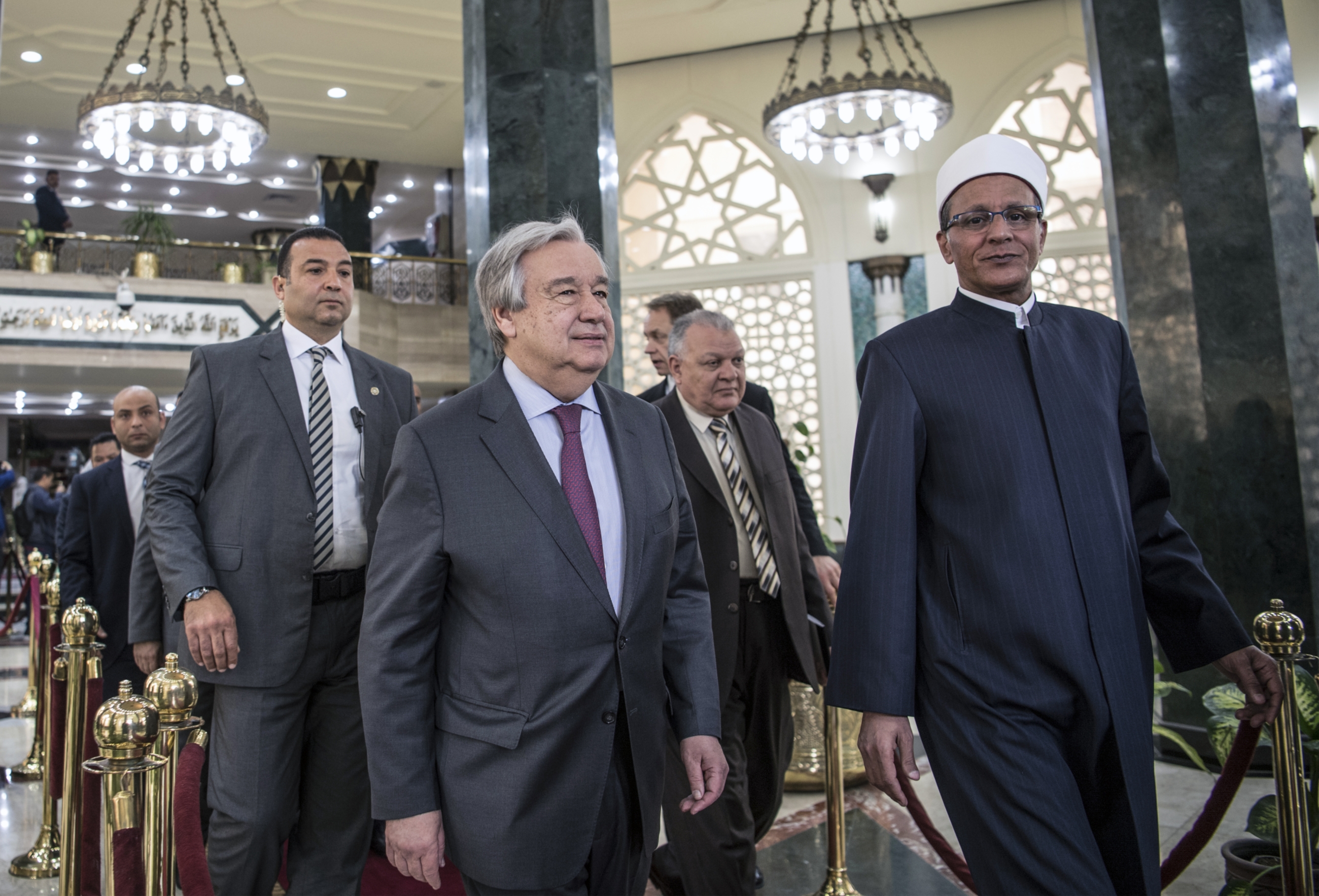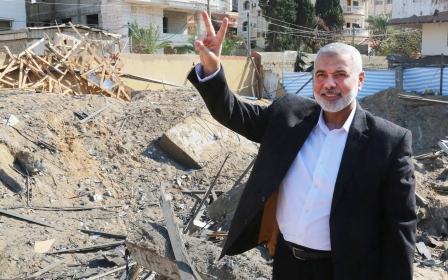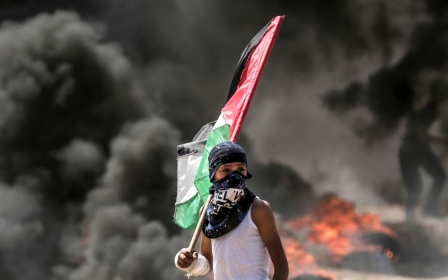UN head warns against growing anti-Muslim sentiment during Cairo visit

The Secretary-General of the UN has warned of a growing global climate of anti-Muslim sentiment in the wake of deadly mosque shootings in Christchurch.
Speaking at Egypt's Al-Azhar, one of the world's foremost Sunni Muslim institutions, Antonio Guterres warned that hate speech was "entering the mainstream, spreading like wildfire through social media".
"Around the world, we are seeing ever-rising anti-Muslim hatred, anti-Semitism, racism and xenophobia," he said.
"We see it spreading in liberal democracies and as well as in authoritarian states."
New MEE newsletter: Jerusalem Dispatch
Sign up to get the latest insights and analysis on Israel-Palestine, alongside Turkey Unpacked and other MEE newsletters
He cited the 15 March New Zealand mosque attacks by a white supremacist, which killed at least 50 people.
He also referred to the 2018 synagogue shooting in Pittsburgh that killed 11 people and is believed to be the deadliest against Jews in US history.
Guterres is on a two-day trip to Egypt, Following his visit to Al-Azhar, he met Grand Imam Ahmed al-Tayeb and was scheduled to meet President Abdel Fattah al-Sisi.
On Sunday, he attended an Arab League summit in Tunisia.
Some activists have been critical of Guterres' engagement with Sisi, as the president continues to pursue the violent suppression of opposition forces in Egypt.
Amr Magdi, a researcher at Human Rights Watch, called on Guterres to raise the issue of human rights abuses in the country.
"Today UN chief [Antonio Guterres] is in Egypt to meet President Sisi, the third such meeting," he tweeted.
"He failed to raise human rights abuses before. In a country witnessing the worst human rights crisis in its recent history, failing to raise concerns would be larger than a mistake."
Sisi, a former army chief, led the military's overthrow of elected President Mohamed Morsi in 2013 following mass protests against the leader's rule.
He won his first term as president the following year and was re-elected in March 2018 with more than 97 percent of the vote.
His government has been criticised for quashing serious opposition and curtailing freedoms gained following a 2011 uprising that toppled longtime ruler Hosni Mubarak.
The authorities have in recent years launched a broad crackdown on dissent targeting Islamists as well as liberal and secular activists.
Novelists, singers, actors and popular social media bloggers have also been swept up in the crackdown.
Middle East Eye delivers independent and unrivalled coverage and analysis of the Middle East, North Africa and beyond. To learn more about republishing this content and the associated fees, please fill out this form. More about MEE can be found here.




